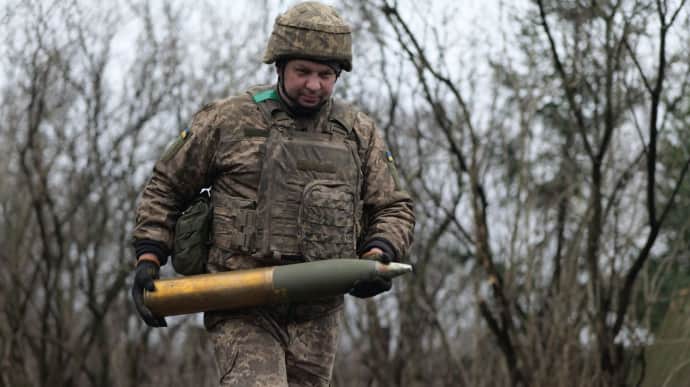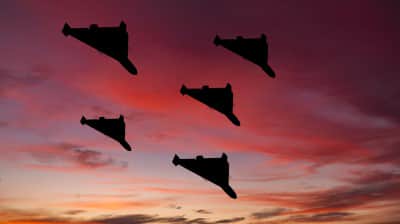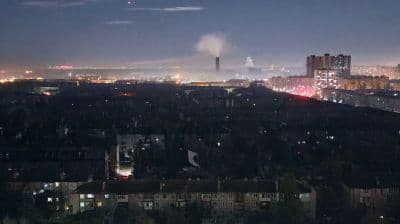Ukraine is running low on ammunition; consequences of delayed support will be felt in the spring – Bloomberg

Ukraine lacks artillery shells and anti-aircraft missiles to defend its cities from Russian attacks, and vital aid from Europe and the US is stuck in the approval process, leaving Ukrainian forces barely able to fend off Russian attacks at times.у
Source: Bloomberg
Details: Western officials familiar with the talks, who requested anonymity, stated that reports from the frontline indicate that the situation is becoming increasingly difficult, with Kyiv's forces barely holding back Moscow's at times.
In addition, as one European diplomat reported, recent waves of Russian missile attacks have taken dozens of lives in Kyiv and other cities because Ukraine's air defences, which rely heavily on expensive Western-produced missiles, have been unable to destroy as many targets as in the past.
Publicly, Ukrainian officials say that they will continue to fight Russian forces even if allied support does not come through. But to maintain an "active defence", Ukraine will need a steady supply of artillery shells and other ammunition, which the allies are struggling to provide.
Diplomats say that European allies will not be able to deliver the 1 million artillery shells they promised by 1 March, with deliveries only expected to reach approximately 600,000 by the deadline amid persistent production delays and concerns about stockpile depletion.
Defence ministers meeting in Brussels this week may try to count other deliveries as part of the total, but will still fall short of the 1 million target set last year, diplomats say.
The challenges come as Ukrainian commanders are finalising plans to shore up the current 600-mile frontline this year, looking for weaknesses in Russian defences but refraining from attempting to make a major breakthrough after last year's counteroffensive yielded disappointing successes, the newspaper said.
According to Bloomberg, Western diplomats say that tensions between President Volodymyr Zelenskyy and Commander-in-Chief Valerii Zaluzhnyi have escalated as stagnation has set in on the front lines.
Russian forces are too depleted to achieve significant success unless Ukraine’s defence capabilities collapse, Western officials add. However, even then, the Kremlin will likely have to mobilise more troops to consolidate its currently hard-won and very limited gains.
In Washington, the White House's US$60 billion aid package has been deadlocked for several months. Without it, everything the Ukrainians have achieved so far "will be in jeopardy," warned US Secretary of State Antony Blinken at a 29 January press conference with NATO Secretary-General Jens Stoltenberg.
European Union leaders will gather on 1 February for an emergency summit that aims to overcome Hungary's resistance to providing €50 billion (US$54 billion) in aid to Ukraine. The EU would like to approve the assistance by the end of February, a European official said.
"Even if EU aid does come through, the lack of US support would be felt by Ukrainian forces on the battlefield by late spring," says Bloomberg, citing Western diplomats.
A Western official said that Kyiv has recently built up some reserves of key Allied-supplied munitions to help supply its troops, but that this can’t make up for the shortage of artillery shells.
Estonian Defence Minister Hanno Pevkur said that Ukrainian forces produce only a third more shells than the Russians on average.
Estonian estimates indicate that Moscow intends to acquire around 4.5 million shells from domestic suppliers and deliveries from North Korea. While the use of more modern howitzers and sophisticated targeting systems has increased the effectiveness of each shell, the difference in numbers cannot be completely overcome.
Pevkur said that combat operations may subside somewhat over the next few months, and that more offensive operations will take place in May and June when the mud from the spring thaw clears. He said that the effects of the EU and US aid, or the lack thereof, will become clear then.
"If we do not have a solution by that time, then it will definitely be extremely difficult for Ukraine to hold the line," warned the Estonian minister.
Support UP or become our patron!







